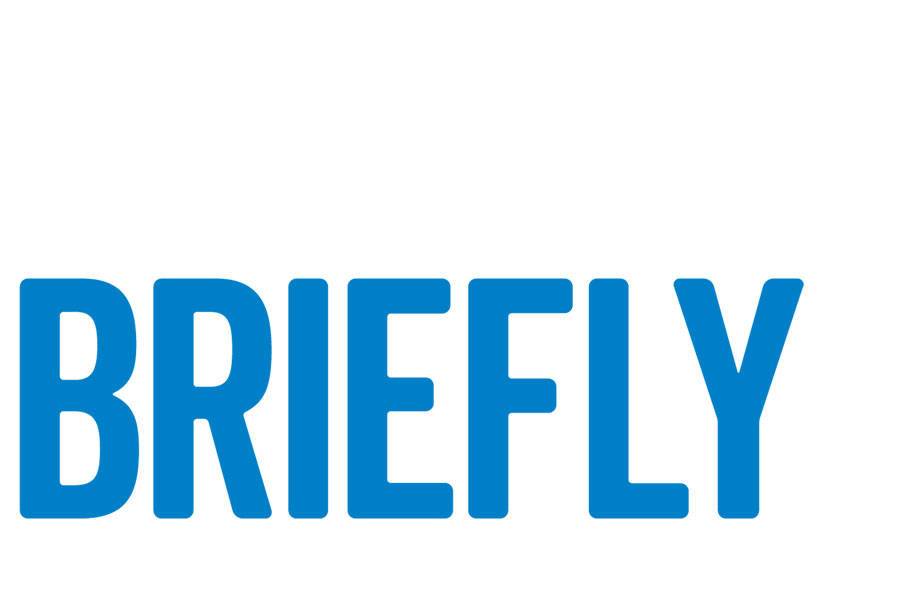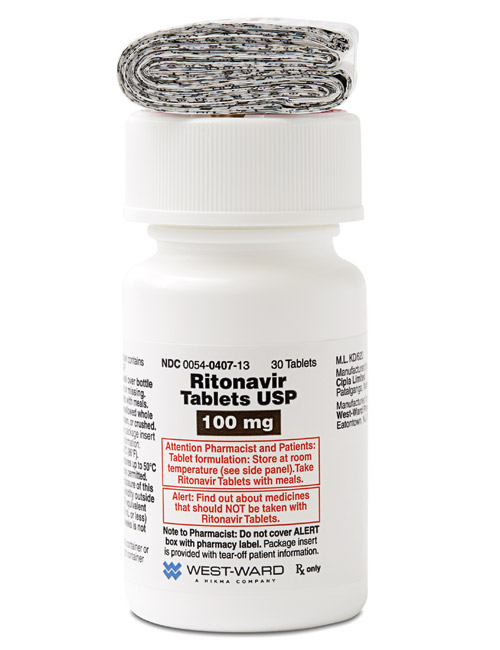
Infusion works differently from all other ARVs
The FDA has approved a new type of HIV medication for heavily treatment-experienced adults whose HIV infection no longer responds to treatment. Trogarzo (ibalizumab-uiyk) treats HIV that has developed multidrug resistance.
Trogarzo is administered intravenously every 14 days by a trained medical professional, and is used in combination with other antiretroviral medications.
“While most patients living with HIV can be successfully treated using a combination of two or more antiretroviral drugs, a small percentage of patients who have taken many HIV drugs in the past have multidrug-resistant HIV, limiting their treatment options and putting them at a high risk of HIV-related complications and progression to death,” Jeff Murray, M.D., the FDA’s deputy director of the Division of Antiviral Products in its Center for Drug Evaluation and Research, said in a press release announcing the approval. “Trogarzo is the first drug in a new class of antiretroviral medications that can provide significant benefit to patients who have run out of HIV treatment options. New treatment options may be able to improve their outcomes.”
“I’ve struggled with multidrug-resistant HIV for almost 30 years and it was completely debilitating to feel like I had run out of options—I made no long-term plans,” said Nelson Vergel, founder of the Program for Wellness Restoration (PoWeR) and Trogarzo clinical study (and continuing) patient, in a press release from Theratechnologies and its partner TaiMed Biologics. “Since starting treatment with Trogarzo six years ago and getting my viral load to an undetectable level, I have been my happiest, most productive self. Trogarzo is a new source of hope and peace of mind for people whose treatments have failed them, and I feel incredibly lucky to have been able to participate in the clinical trial program.”
“In Phase 3 ibalizumab trials, we saw marked improvements in patients’ health who not only were heavily treatment-experienced and had limited remaining treatment options, but in some cases they also had extremely high viral loads and significantly impaired immune systems,” said Edwin DeJesus, M.D., Medical Director for the Orlando Immunology Center, in the press release. “As an investigator for ibalizumab clinical trials over nearly 10 years, it was remarkable and inspiring to see the dramatic effect ibalizumab had on such vulnerable patients. As a clinician, I am excited that we will now have another option with a different mechanism of action for our heavily pretreated patients who are struggling to keep their viral load below detection because their HIV is resistant to multiple drugs.” Although taken only every two weeks—the only HIV drug not taken daily—the other antiviral medications in the regimen must be taken daily (because none are available for less-than-daily doses).
Originally known by its generic name ibalizumab, the FDA added the extension “uiyk” to signify that this is from the drug class called monoclonal antibodies. Trogarzo’s official drug class designation is “CD4-directed post-attachment HIV-1 inhibitor.” It is a subclass of the HIV entry inhibitors.
The only adverse event listed on Trogarzo’s drug label is IRIS (immune reconstitution inflammation syndrome), which can occur with all new HIV regimens. It’s the immune system’s response to being strengthened, and then beginning to fight off underlying infections. Pain at infusion sites may also occur. Adverse reactions include nausea and rash (5% each) and diarrhea and dizziness (8% each). The price tag was expected to be high for this niche medication: it came in at $118,000 a year. There is a patient support program, Thera patient support (833-238-4372.).
“Trogarzo also received Orphan Drug designation,” the FDA reported, “which provides incentives to assist and encourage the development of drugs for rare diseases.” Without such support, drug companies have trouble creating such a medication. Trograzo was almost dead in the water before activist advice helped save it.
In a video presentation last year, Jacob Lalezari, MD, a lead researcher on ibalizumab, said, “The issue of multidrug-resistant virus in HIV is not a huge problem in that we see the continued success of combination therapy, one pill once a day. Most of the patients in our clinic are doing fine. This drug is really about addressing the needs of those left behind, the most vulnerable people…. In many ways they are the victims of the success of HIV drug development, because these once-a-day therapies are working so well and the bar is set so high that it’s very difficult for companies to bring new molecules with new mechanisms of action into the clinic.” Lalezari is the medical director of Quest Clinical Research, inSan Francisco. Watch the short video at bit.ly/2f2b37j.
Go to positivelyaware.com/trogarzo for more information. See also “Back to the Future” in the January + February 2017 issue.
Generic ritonavir (Norvir) now available
West-Ward Pharmaceuticals announced a launch of its generic ritonavir in March. Ritonavir is an HIV protease inhibitor sold under the brand name Norvir. It is no longer used as an HIV drug, but as a booster for blood levels of certain other HIV medications. The U.S. provider of generics has created a series of patient education materials for the launch. Go to generic-ritonavir.com.
It’s not in your head— Biktarvy and Viagra can play well together
A funny thing came up during studies with the new med Biktarvy.
Some people switching from a boosted HIV regimen to Biktarvy were under the impression that their Viagra had stopped working.
But HIV regimens with a booster, either Norvir or Tybost, also increase the levels of Viagra and other erectile dysfunction meds. As a result, lower doses of ED meds are used.
Keep this in mind when switching to Biktarvy. Increase your ED drug dose back up little by little, not to exceed the standard dose of 100 mg a day.
The greater risk of drug interactions while on a boosted regimen is also why you should check for them if you feel funny when going on one of them.
Boosted HIV combo pills include Evotaz, Genvoya, Prezcobix, Stribild, and Kaletra, along with the combinations of Prezista or Reyataz plus Norvir (ritonavir) or Tybost (cobicistat).
Hepatitis C kidney transplants
Good news: using kidneys from donors who have hepatitis C can work without transmitting the virus. The Johns Hopkins University study gave the anti-HCV drug Zepatier to 10 kidney transplant patients. An oral medication, Zepatier consists of grazoprevier and elbasvir. Now, a year later, all 10 transplant recipients remain free of hep C.
“Until recently, treating hepatitis C was difficult; treatment regimens often included weekly injections, led to serious side effects that not all patients could tolerate, and didn’t cure all cases of the viral infection,” the university’s school of medicine reported. “That meant that organs—including kidneys—from hepatitis C-positive people were considered too high-risk to transplant into patients without the virus. … In the past seven years, however, a handful of new direct-acting antivirals have hit the market; the drugs cure more than 95% of all hepatitis C cases [including those co-infected with HIV], and carry few side effects.”
A Zepatier tablet was given as the patient waited for surgery, and then given daily for 12 weeks afterwards.
The university noted that each year, 500 kidneys are discarded from people with hepatitis C. The virus is common in people living with HIV.
TPAN names Christopher Clark new CEO
TPAN, the publisher of Positively Aware magazine, announced on April 10 that it has hired Christopher Clark to serve as the organization’s Chief Executive Officer. Clark will begin on April 30, 2018.
Clark joins TPAN following more than a decade of service at Lambda Legal, the national legal organization dedicated to achieving the full recognition of the civil rights of lesbians, gay men, bisexuals, transgender people, and everyone living with HIV. Since 2016, Clark has served as Lambda Legal’s Midwest Regional Director, responsible for the management of the Chicago office and the coordination of fundraising and public policy strategies in a 10-state Midwest region. Prior to assuming that senior management position, Clark served as senior attorney and the organization’s strategist for its work on behalf of students.
“Christopher Clark brings to TPAN a wealth of leadership and management experience as an advocate for people living with HIV,” said TPAN’s Board President, Michael Murphy. “The Board of Directors is thrilled that he is joining our team.”
As an attorney at Lambda Legal, Clark litigated cases across the country on behalf of LGBT people and those affected by HIV. During his career, he successfully brought appeals before five different state supreme courts. In one notable case, he argued before the Iowa Supreme Court on behalf of an HIV-positive man unjustly convicted under the state’s HIV criminalization law. Clark and the Lambda Legal team convinced the court to overturn the conviction.
In his management position, Clark developed a national pro bono project designed to develop relationships with law firms and attorneys across the country. He also coordinated the Chicago and Midwest fundraising efforts, including high-profile ticketed events, individual and corporate solicitations, and foundation grant proposals.
“TPAN provides critical education, testing, counseling, and case management to those affected by HIV who might not otherwise receive these lifesaving services,” Clark said. “I am excited and honored to become a part of the passionate and dedicated staff.”
PEP on demand—another prevention strategy
While PrEP has gained a lot of attention as the pill for HIV prevention, another, older prevention strategy that has been nearly forgotten is PEP.
PEP (post-exposure prophylaxis) protection against HIV infection consists of taking anti-HIV medications for 28 days following a potential exposure to the virus. The medications should be taken within 72 hours—ideally, within 48 hours—of exposure.
CATIE, the Canadian AIDS Treatment Information Exchange, reported on two Toronto clinics that set up a system whereby HIV-negative individuals could get PEP prescriptions upfront, called “HIV PEP-in-Pocket.” Or, “PIP.”
“Doctors at two HIV clinics in Toronto have found that there are some HIV-negative people ‘who do not meet criteria for daily or on-demand PrEP given their relative infrequency of potential HIV exposures, but who nevertheless remain at risk and are eager to use a biomedical HIV prevention strategy,’ ” CATIE reported.
“To help protect this group of people, doctors did something novel: They prescribed PEP in advance, or as they called it, ‘on-demand,’ so that in case of potential exposure patients can initiate PEP on their own and then subsequently seek medical attention.
“The strategy of PIP is designed to prevent HIV while reducing the disadvantages of the traditional way that some people seek and receive PEP. For instance, in the case of potential exposure after business hours or on a weekend or holiday, patients may need to go to a hospital’s emergency department because their doctor’s office may be closed. At the emergency department, they will need to be screened and evaluated for their risk of infection. After this, some people may not receive PEP (particularly if they seek help more than 72 hours after exposure) and some may not choose to wait in busy and sometimes overcrowded emergency rooms.”
The doctors found that 30 patients had been prescribed PIP in the past five years, but only four patients (13%) used PEP during that time. All of them initiated PEP less than 10 hours after a potential exposure and none of them became infected.
CATIE noted that, “In theory, PIP offers advantages for protecting people at risk for HIV infection who may not wish to take PrEP either because of infrequent sexual activity or for other reasons.”
The results of this highly innovative program were written up and are awaiting publication in JAIDS (Journal of Acquired Immune Deficiency Syndromes), by Tumarkin E, et al. under the title “HIV Post-Exposure Prophylaxis-in-Pocket (‘PIP’) for individuals with low-frequency, high-risk HIV exposures.”
Fair Pricing Coalition welcomes U.S. launches of new generic antiretrovirals
The Fair Pricing Coalition (FPC), an ad hoc coalition of HIV and hepatitis C virus (HCV) activists, released a detailed statement on March 26 welcoming the U.S. Food and Drug Administration approvals and launches of Mylan’s Cimduo (tenofovir disoproxil/lamuvidune) and Symfi Lo (efavirenz/tenofovir disoproxil/lamivudine), with benchmark prices 40 percent lower than that of comparator drugs (Truvada and Atripla). Cimduo and Symfi Lo join a number of off-patent antiretrovirals (ARVs)—both generic and brands—entering the U.S. market that can potentially increase competition and lead to lower prices for purchasers and payors.
“With the growing number of lower-cost ARVs entering the U.S. market, pricing differences between comparable HIV treatment regimens are an important consideration,” said Tim Horn, Chair of the FPC. “The societal benefits of reduced health care spending are well known and lower antiretroviral costs could translate to significantly increased access to HIV treatment and less discrimination within the health insurance market.”
Generic drug products save the U.S. healthcare system billions of dollars a year: $253 billion in savings were generated in 2016 alone, with $1.67 trillion in savings over the past decade. This translates into public health care expenditure savings, private health insurance premium cost containment, and reduced out-of-pocket spending by consumers. With increasing demand for safe and effective off-patent drug products, competition between manufacturers results in further price reductions and increased savings.
“HIV drug spending simply isn’t sustainable,” said Lynda Dee, a founding co-chair of the FPC. “Less than half of the 1.1 million people living with HIV are on treatment and have undetectable viral loads. We need to get more people on treatment with the appropriate support systems to ensure linkage to, and engagement in, care and adherence. Resources are finite, however, especially for diseases of public health significance. We’re already seeing public and private insurers implementing significant cost-containment measures against high-cost regimens because they are priced beyond what taxpayers and the insurance markets can reasonably bear.”
FPC strongly encourages people living with HIV to discuss their treatment choices in the context of drug pricing and the importance of cost savings with their providers. The coalition also recognizes that payor preferences for cheaper competitive products, in the form of step therapy requirements and denials of coverage for higher-cost monopoly products, can be intrusive and dangerous. “People living with HIV are not a homogenous patient population; individualized therapy to meet adherence needs is still essential,” said Horn. “To prevent these cost-containment measures, we urge the leading traditional manufacturers of HIV drug products—Gilead, ViiV, Merck, and Janssen—to price their products competitively with emerging lower-price options.”
Cimduo has not been tested and is not approved for use as PrEP (pre-exposure prophylaxis) as it does not contain emtricitabine (FTC), a component of both Truvada and Descovy, and therefore should never be used as PrEP.
Read the full FPC statement at fairpricingcoalition.org.
Surgeon General urges that more people carry naloxone to reverse an opioid overdose
U.S. Surgeon General Jerome M. Adams, M.D., M.P.H., issued a recommendation in April that more Americans carry a lifesaving medication that can reverse the effects of an opioid overdose.
The medication, naloxone, is already carried by many first responders, such as EMTs and police officers. The Surgeon General says family, friends, and those who are personally at risk for an opioid overdose should also keep the drug on hand.
Opioids are a class of drugs that include medications such as oxycodone, hydrocodone, and methadone, which are commonly prescribed to treat pain. Pharmaceutical fentanyl is a synthetic opioid which is 50 times more potent than heroin and 100 times more potent than morphine. It is approved for treating severe pain, typically post-surgical or advanced cancer pain. However, most recent cases of fentanyl-related harms are a result of illicitly made fentanyl.
“Each day we lose 115 Americans to an opioid overdose—that’s one person every 12.5 minutes,” said Surgeon General Adams. “It is time to make sure more people have access to this lifesaving medication, because 77% of opioid overdose deaths occur outside of a medical setting and more than half occur at home.”
Naloxone, an FDA-approved medication that can be delivered via nasal mist or injection can temporarily suspend the effects of the overdose until emergency responders arrive.
“To manage opioid addiction and prevent future overdoses, increased naloxone availability must occur in conjunction with expanded access to evidence-based treatment for opioid use disorder,” the Surgeon General said.
All states have passed laws to increase access to naloxone and, in most states, it is available at pharmacies without a prescription. In addition, most states have laws protecting health care professionals for prescribing and dispensing naloxone from civil and criminal liabilities. Good Samaritan laws protect people who administer naloxone or call for help during an opioid overdose emergency.
Naloxone is covered by most insurance plans and, for those without coverage, may be available at low or no cost through local public health programs or through retailer and manufacturer discounts.
To learn more how to recognize and respond to an opioid overdose, go to surgeongeneral.gov.”



